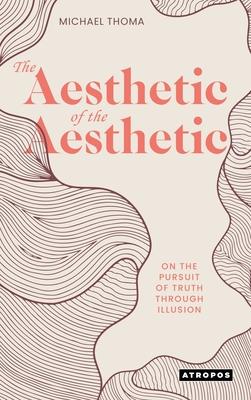The Aesthetic of the Aesthetic
Do our aesthetic judgements distort our social reality? Does the modern world create space for sustained contemplation and reflection? What significance does the work of art have in contemporary thought? Using concepts from Continental philosophy, literary theory, art history and film theory, writer and professor Michael Thoma provides a dynamic and comprehensive examination of the aesthetic involved through works of art and artistic movements in their many and varied forms. This critical engagement will be of great interest to students and scholars in the humanities and social sciences, to those engaged in the discourse surrounding modern culture and contemporary thought, and to anyone concerned with the fate of the work of art in our time.
The Aesthetic of the Aesthetic
Do our aesthetic judgements distort our social reality? Does the modern world create space for sustained contemplation and reflection? What significance does the work of art have in contemporary thought? Using concepts from Continental philosophy, literary theory, art history and film theory, writer and professor Michael Thoma provides a dynamic and comprehensive examination of the aesthetic involved through works of art and artistic movements in their many and varied forms. This critical engagement will be of great interest to students and scholars in the humanities and social sciences, to those engaged in the discourse surrounding modern culture and contemporary thought, and to anyone concerned with the fate of the work of art in our time.
The Aesthetic of the Aesthetic
Do our aesthetic judgements distort our social reality? Does the modern world create space for sustained contemplation and reflection? What significance does the work of art have in contemporary thought? Using concepts from Continental philosophy, literary theory, art history and film theory, writer and professor Michael Thoma provides a dynamic and comprehensive examination of the aesthetic involved through works of art and artistic movements in their many and varied forms. This critical engagement will be of great interest to students and scholars in the humanities and social sciences, to those engaged in the discourse surrounding modern culture and contemporary thought, and to anyone concerned with the fate of the work of art in our time.
